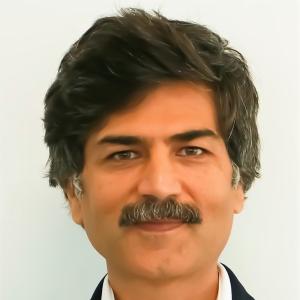Government of Timor-Leste, United Nations, and civil society representatives agree on priority actions in 2021 for sustainable development
05 February 2021
During the first meeting of the newly established Joint Steering Committee of the UN Timor-Leste Sustainable Development Cooperation Framework (UNSDCF) 2021-2025, the participants engaged in an active dialogue on the UN’s collective support to advance the national sustainable development agenda as articulated in the GoTL Strategic Development Plan (2011-2030).
Dili, TIMOR-LESTE, 5 February 2021: The Government of Timor-Leste (GoTL), the United Nations (UN) and the civil society renewed their commitment to work together to accelerate Timor-Leste’s progress towards the Sustainable Development Goals (SDGs) and support the country’s COVID-19 response and recovery.
During the first meeting of the newly established Joint Steering Committee of the UN Timor-Leste Sustainable Development Cooperation Framework (UNSDCF) 2021-2025, the participants engaged in an active dialogue on the UN’s collective support to advance the national sustainable development agenda as articulated in the GoTL Strategic Development Plan (2011-2030).
The meeting was presided by H.E. Adaljiza Albertina Xavier Reis Magno, Minister of Foreign Affairs and Cooperation, and co-chaired by Mr. Jesuino Alves, Director-General of Multilateral and Regional Affairs, Ministry of Foreign Affairs and Cooperation, and Mr. Roy Trivedy, UN Resident Coordinator.
“Timor-Leste has made substantial achievements over the past 20 years. However, there remain areas for improvement to ensure the attainment of the country’s Strategic Development Plan 2011-2030 and the 2030 Sustainable Development Goals. Therefore, the UNSDCF 2021-2025 is a significant tool that can guide an effective partnership between the Government, the UN and the civil society to this end.” said H.E. Adaljiza Albertina Xavier Reis Magno.
“The next five years are critically important years that will shape the country’s transformation in 2030. We see today’s UNSDCF Joint Steering Committee meeting as a key instrument for the Government, the UN and the civil society to work even better together in partnership to achieve concrete results. Across all our activities, the UN will strive to contribute to advance gender equality, promote and protect human rights, build the resilience of people, communities and institutions, and address inequalities to Leave No One Behind including through investment in social protection,” said Mr. Roy Trivedy.
The meeting participants discussed and agreed on key priority activities that will be supported by the UN in 2021 in six strategic results areas: supporting nutrition, food security and sustainable agriculture; promoting sustainable economic opportunities and decent work for all; building human capital from early childhood development and supporting life-long learning and skills; promoting quality health care and well-being; strengthening accountable, inclusive and participatory governance and quality public services; and supporting the sustainable management of natural resources and resilience to climate change.
The participants also agreed to scale-up their partnership to collectively strengthen national and local capacities and to address inequalities to leave no one behind.
-END-
BACKGROUND NOTE FOR EDITOR
The UN Timor-Leste Sustainable Development Cooperation Framework (UNSDCF) 2021-2025 represents the UN’s collective value proposition to support and accelerate Timor-Leste’s progress towards achieving the SDGs and its national development priorities. It was developed in partnership with the Government of Timor-Leste, civil society organization, development partners and other stakeholders through a consultative process in 2019/2020 and signed between the Government and the UN in May 2020.
The UN will support national efforts across six strategic priority areas, to ensure that by 2025:
- Nutrition, food security and agricultural productivity have improved for all, irrespective of the individual ability, gender, age, socio-economic status and geographical location;
- People throughout Timor-Leste in all their diversity, especially women and youth, benefit from sustainable economic opportunities and decent work;
- All people of Timor-Leste, particularly excluded and disadvantaged groups, have increased access to quality formal and innovative learning pathways (from early childhood through lifelong learning) and acquire foundational, transferable, digital and job-specific skills;
- The people of Timor-Leste increasingly demand and have access to gender-responsive equitable, high quality, resilient and inclusive Primary Health Care and strengthened social protection, including in times of emergencies;
- The people of Timor-Leste, especially the most excluded are empowered to claim their rights, including freedom from violence, through accessible, accountable and gender-responsive governance systems, institutions and services at national and subnational levels; and,
- National and sub-national institutions and communities (particularly at-risk populations including women and children) in Timor-Leste are better able to manage natural resources and achieve enhanced resilience to impacts of climate change, natural and human-induced hazards, and environmental degradation, inclusively and sustainably.
FOR MEDIA INQUIRIES
National Directorate for Social Communication and Promotion, Ministry of Foreign Affairs and Cooperation. Email: ( cdcs01mnectimorleste@gmail.com )
Kanako Mabuchi, Head of UN Resident Coordinator’s Office (email: Kanako.Mabuchi@un.org)


















